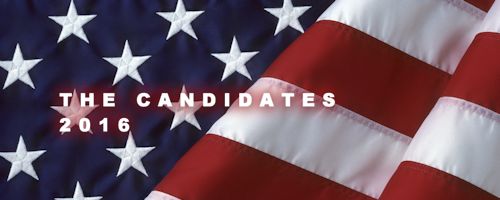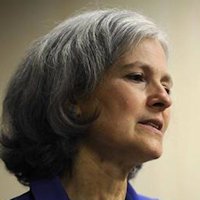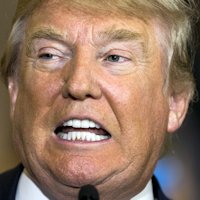
The Candidates 2016 and the Economy - Page 2
When it comes to economics, my bias lies in the free market. I'm a believer in people, not central planning, a guy more likely to be found reading Thomas Sowell than Paul Krugman. The push to regulate all aspects of life in an effort to make things "fair" is often misguided and counter-productive, and if there's one thing the Twentieth Century should have taught us, it's that capitalism, free trade, and Adam Smith's Invisible Hand lead to greater prosperity for everyone than socialized central planning, big government, and bureaucracy. Of course, business and politics are much too intertwined these days, but rather than complain about the undue influence of the one percenters and lobbyists, I complain about how much influence the government has on them. If it weren't for government meddling in the market through tax subsidies, mind-numbingly complicated regulatory structures, and the unintended consequences of attempts to control the economy, businesses would have no incentive to get in bed with our politicians. Rather than spending so much money convincing a Senate subcommittee to vote for a tax increase on its competition, a big business would instead spend its money on its own profit motive, improving itself and the quality of whatever good or service it provides in order to compete on level ground. My prefered candidate must be an advocate for free market economics, smaller government, and less intervention between businesses and their customers. This country would flourish under a greatly simplified tax code, more open trade, and fewer regulation-created monopolies. Jobs, cheap energy, and wealth would inevitably follow.
The Budget and National Debt
 | | About as reasonable as Congress' plans to deal with the debt |
The national debt is out of control, and the federal budget spends way too much time deep in the red, regardless of which political party is in power. We simply cannot continue down this path without risking economic collapse, and almost everybody knows it. However, when it comes time to be fiscally reponsible, Washington is paralyzed into inaction, because no lawmaker wants to take a hit in the polls for cutting spending to some program beloved by his or her constituents. On top of that, Congress has decided to lump all of its budget requirements into a single bill that they only occasionally deign to actually pass into law, making constructive compromise impossible. While I know the problem is mostly Congress' to solve and not the president's, I want somebody in the White House who can make it clear that we need to change course; we need to do it drastically; we need to force Congress to do its damn job instead of lazily clumping everything into a single omnibus bill; and we need them to get it done yesterday. If that doesn't happen, I fear we're heading towards tremendous and terrifying social upheaval like we're seeing in Greece, only on a much bigger scale.
Though she mentions her desire to have fiscal discipline, Hillary Clinton supports expanding social security and medicare, having the government pay off everyone's student debt, creating the biggest increase in infrastructure spending in decades, and much, much more.
Gary Johnson has called our $20 trillion national debt "obscene and unsustainable," and promises to veto any legislation that includes a budget deficit. He also promises to submit a fully balanced budget as his first major policy act upon taking office.
As far as I can tell--and let me tell you, I had to dig deep--the only time Jill Stein talks about the federal budget, she talks about how it is bloated by military spending and Wall Street bailouts. She has no concrete plan to reduce spending--on the contrary, her list of things she wants to spend federal dollars on absolutely dwarfs Hillary Clinton's, including such gems as establishing public, democratically-run banking and utilities--but she does discuss her desire to cut military spending by at least 50% (though she wants to funnel that money into green projects instead of creating a balanced budget). She believes she can balance the budget through that, along with heavy tax increases on the wealthy.
Donald Trump believes that $24 trillion is the point of no return, and has called for cutting the Department of Education, the Environmental Protection Agency, and other federal bureaucracies, while dramatically increasing defense spending. He wants to "renegotiate" the national debt.
Again, the only candidate who gets it right here is Gary Johnson. Clinton is a run of the mill tax-and-spend liberal; Jill Stein is certifiably insane, though I do agree with her that military spending is a big part of the problem; and Donald Trump has unrealistic expectations and would probably continue raising the national debt. We cannot afford to waste any more time, and so I would enthusiastically vote for Johnson on this one.
Jobs
 | | Protectionism, in a nutshell |
A subject almost as nebulous as the greater economy, jobs are usually the centerpiece and driving force of any candidate's economic policy. Everybody talks about "creating jobs," because, to the people who elect our leaders, getting a job, keeping a job, and being paid well for having a job are far more concrete and real than arguments about taxation, omnibus spending, or the debt ceiling. So the bottom line, as far as most people are concerned, is this: What will the candidate do to ensure that you have a job if you want it? I personally believe that the best job creator is the free market, and as long as government stays out of the way of that, it can do whatever it likes.
On her website, Hillary Clinton announces her desire to pass "the boldest investment in good-paying jobs since World War II" within her first 100 days in office. She will "invest" in "infrastructure, manufacturing, research and technology, clean energy, and small business"; she will "strengthen trade enforcement" and "say no to trade deals like TPP"; and she will ensure that half a billion solar panels are installed within her first term.
Gary Johnson, on the other hand, talks about his plan to "incentivize job growth" by applying a "common sense" regulatory policy that protects citizens from bad actors without being used "to manipulate the economy, to manage private lives and businesses, or to place unnecessary burden on those who make our economy work." He believes that an excessive regulatory state hurts small businesses at the expense of larger ones and acts as an overall drain on a country's ability to employ its citizens.
As previously mentioned, Jill Stein wants to declare jobs a basic human right. She proposes to ensure everybody can get a $15 an hour job by turning unemployment offices into "employment" offices, and by offering public service jobs to everyone who fails to find a job in the private sector. She also wants to "create 20 million jobs" in the Green New Deal by spending heavily on sustainable energy, mass transit, sustainable organic agriculture, clean manufacturing, improved infrastructure, and more.
Donald Trump's website declares that "high taxes and excessive regulation push jobs overseas, reduce wages, and create a smaller economy for everyone." Trump wants regulatory reform that starts with a temporary halt on any new federal regulation while reviewing all existing regulations to see which ones are actually effective and which are doing harm to economic growth. However, he also wants to enact protectionist trade reform by renegotiating NAFTA, withdrawing from the TPP, renegotiating the national debt, applying harsh tariffs and penalties, and labeling China a "currency manipulator."
Again, I can only reward a point to Johnson on this one. I agree with Trump when it comes to regulatory reform, but no tariff is going to "bring jobs back" (that's premised on a very poor understanding of how trade works). Also, doing things like changing our relationship to NAFTA, withdrawing from the TPP, and renegotiating the national debt (mostly with a country he wants to label a manipulator) are unbelievably foolish. Clinton also wants to withdraw from the TPP and strengthen trade enforcement, but instead of doing anything about the overburdening regulatory structures in place, she thinks more spending and tax subsidies are the solution. Jill Stein wants to spend our way into job creation, too, but she thinks she can then use the government to employ everyone who is out of work and give them fifteen bucks an hour. Whatever she's smoking, I don't ever want to try it.
The Scorecard
 | |  | CLINTON:
0 | | JOHNSON:
4 | | | |  | |  | STEIN:
0 | | TRUMP:
0 |
|
 | |  | CLINTON:
0 | | JOHNSON:
4 | | | |  | |  | STEIN:
0 | | TRUMP:
0 |
|
Well, that was definitive. On economic issues, I agree almost entirely with Gary Johnson and have serious problems with the three other candidates. If the economy were the only relevant issue in this election, I wouldn't hesitate for a second to vote for the Libertarian.
-e. magill 9/8/2016
|
|